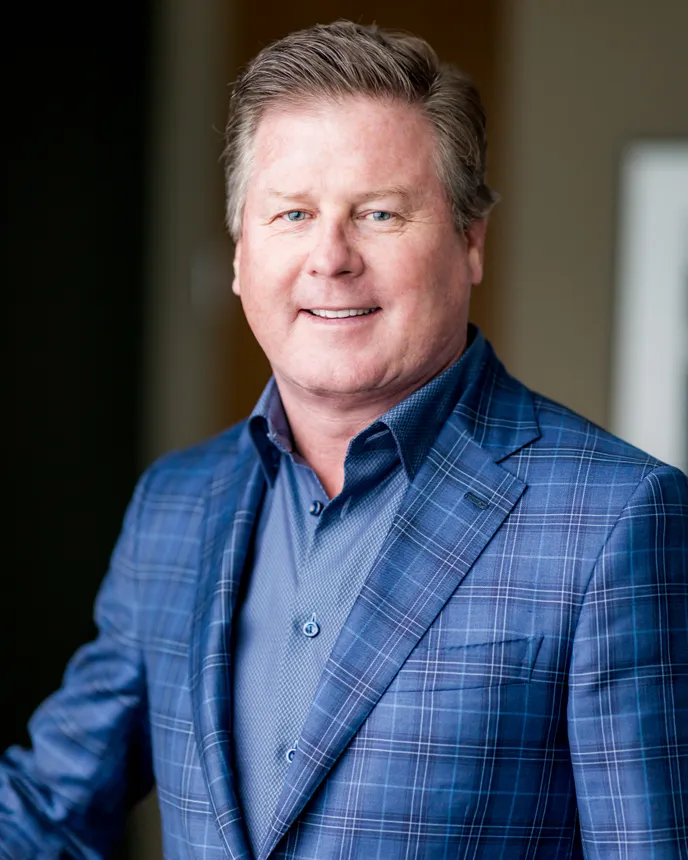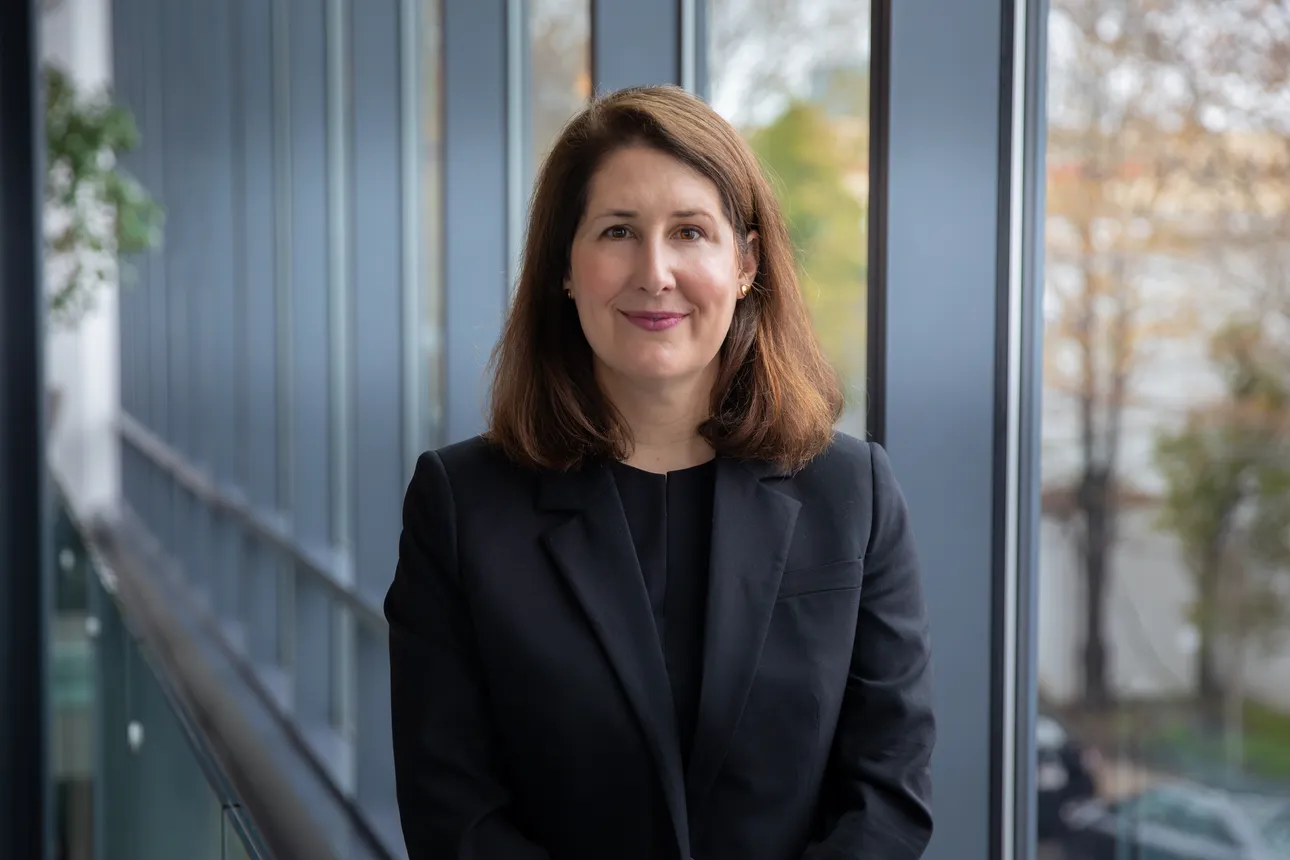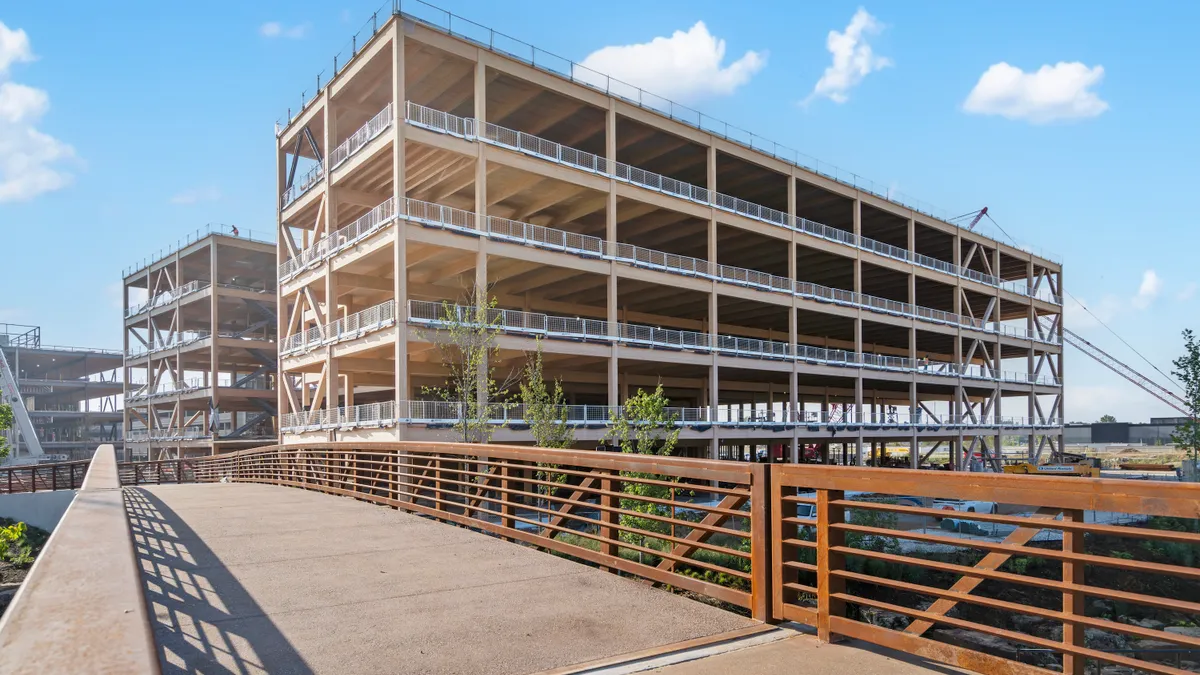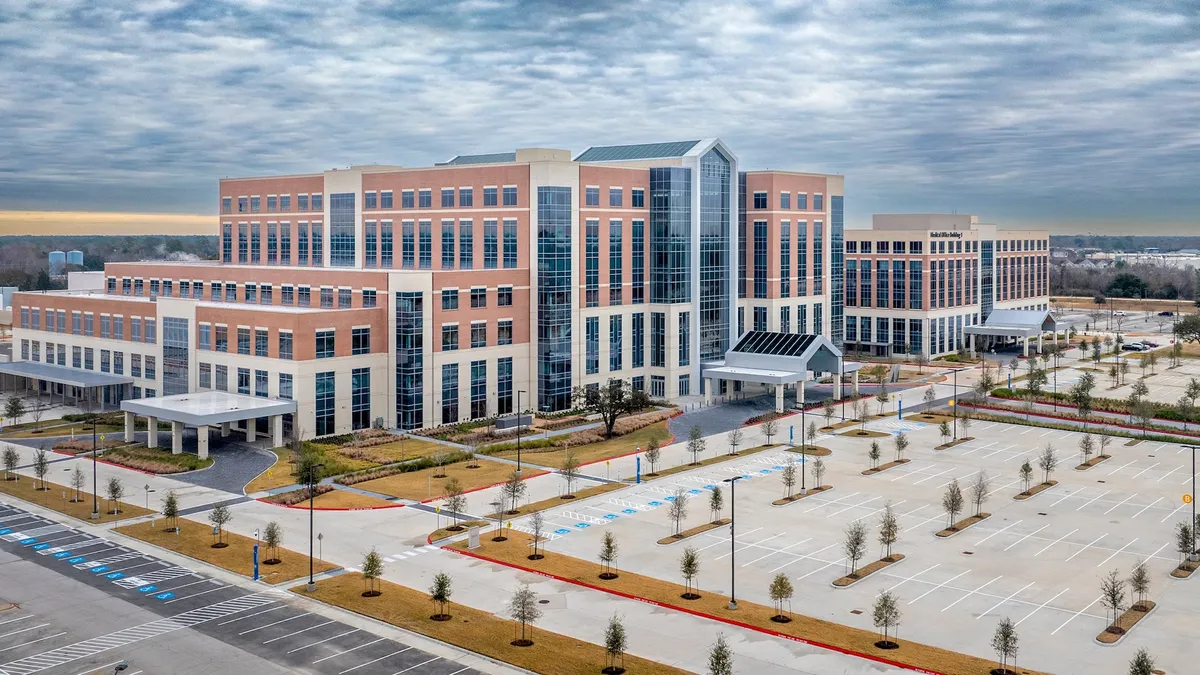Les Hiscoe likes to point out to his son the buildings in New York City he has worked on. The CEO of Shawmut Design and Construction says he watches buildings under construction from his apartment in the city.
“I bring my son over to the window. I'm like, ‘Hey, check it out. Here's what they're doing today.’ And he's like, ‘Dad, enough,’” Hiscoe said.
Pride in the physical results of labor help workers enjoy their jobs, Hiscoe said
“There is such a rewarding part about construction when you physically put work in place, and then when you finally finish what you started and you walk by it, you go, ‘I'm really proud of that,’” he said.
The Boston-based construction firm recently won second place in Fortune magazine’s Best Workplaces in Construction ranking in the small and medium category, just below a Maryland home building firm. In a survey, 95% of employees said the company is a great place to work.
Other construction-related businesses making Fortune’s list of 40 companies total PCL, Hilti, Moss Construction Management, Toll Brothers, Southland and Suffolk, all in the large companies category. Company leaders such as Hiscoe say there are tactics they follow to make their companies sought-after places to work.
Having a voice
For one thing, Shawmut is 100% employee-owned, as is Denver-based PCL, which took fourth place among large companies and was the top commercial contractor in that category. PCL President and COO of U.S. operations Deron Brown said about 90% of PCL’s salaried employees have purchased company stock.
“It gives us a sense of ownership. It gives us a sense of ‘You have a bigger say in this large company’ and people listen,” he said.

Of course, not every company has employees who literally buy into its success. The key, Brown said, is to invest in culture.
“You’ve got to listen to your employees,” he said. “It’s listening and feeling like they have a voice and they’re engaged and they are a part of your company, and they’re not just an employee getting a paycheck.”
Brown said leaders should remember the experience of rising through the ranks, recalling the experience of entering the workforce at a junior level and the pressures people face from work everyday.
People first
Hiscoe said he thinks focusing on people first and maintaining an enthusiastic energy helped with results.
“If they feel great when they come to work and they show up at a client’s construction site or office or meeting, that shows through,” he said. “That I’m super jazzed and energized at my place of work, I’m going to deliver excellently for you because I love what I do.”

Suzanne Roeder, chief growth officer at Suffolk, said to “always sweat the small stuff,” and focus on carefully choosing who to hire, promote and figure out who may not fit into the culture in the long term.
“‘Sweating the small stuff’ is caring about all the small moments in people’s lives, both inside and outside of the workplace,” Roeder said. “There is no silver bullet or initiative that will make a company a great place to work. Excellent company culture is built on how your manager responds in a challenging situation.”
Addressing ills
A recent survey named construction the happiest U.S. industry, but those who work in it say it still has shortcomings. Construction has a suicide rate of roughly 45 per 100,000 workers, 18 more than the national rate for all industries, according to the CDC.
“I think jobsites can be isolated,” Hiscoe said, adding workers may try to work through injuries, rely on painkillers or work longer hours to make extra money. “We’ve addressed the problem head on by talking to all people in the field, our craftworkers at all the subcontractor levels. We want people to be able to talk to us.”
If someone has just worked a double shift, for example, Hiscoe said he wants those nearby to care about how they get home and that they don’t drive while fatigued.
“I think that level of caring has to get pushed harder in our industry,” he said.
Brown pointed out the mental health epidemic, highlighted by more stress at work and social media.
“We have to adapt and change to the pressures of what’s out there and put programs together for mental health,” he said. “We have this kind of work hard, play hard [mentality] — what that means is celebrate and encourage all your workers and understand that they are going through a tough phase on a project, and you got to find the time to thank them and, and celebrate them.”
Clarification: This story has been updated to clarify Deron Brown’s job title.





















